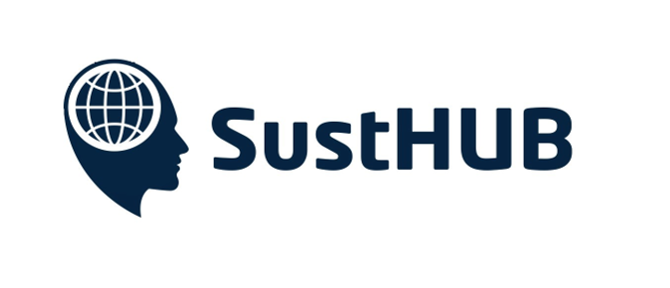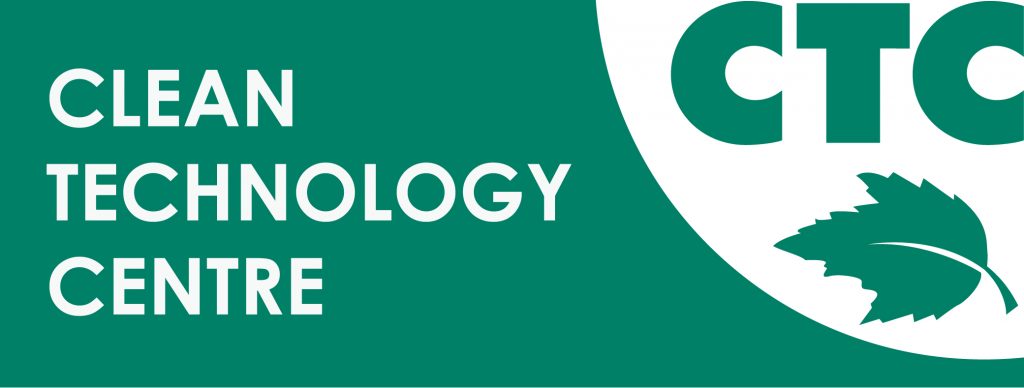
30 NOVEMBER 2021 – 21 JANUARY 2022
Strategy Green
This innovative programme is delivered in a series of online interactive, tutor-led workshops, that will build new skills and competencies for member companies in the food sector, focusing on economic recovery, employment and sustainability.
Green Jobs, Green Skills, Green Economy
Limited to 16 places [Criteria Apply]
About Taste 4 Success Skillnet
The Taste 4 Success Skillnet works with its members to identify and drive training and upskilling in the food, seafood and drink sectors, to meet business, people and performance needs.
Its members include multinationals, large, medium, small indigenous Irish companies, and a growing number of micro and artisan producers involved in food, seafood and drink (micro brewing) production.
What will the Programme cover?

Sustainability & Climate Strategy
Leaders are accountable for financial, social and also environmental responsibilities, so they have to create a sustainability and climate strategy which is not a nice to have anymore.

Resource Efficiency

Creating a Sustainability Culture
Module 1 Part 1 - Sustainability 101
30th November, 9.30 – 12.00pm

This module has been designed to provide participants with a practical introduction to sustainability, so they are equipped with the awareness, knowledge and skills required to underpin longer-term sustainable behaviours important to their working environment, including: understanding carbon and climate change, energy, water, packaging, waste, biodiversity, sourcing, workplace and wider responsible business practice.
Participants will be encouraged to identify a work project.
Content Overview & Learning Outcomes
- Demystifying the topic of sustainability – cutting through the noise
- Introducing: sustainability, UN SDGs, circular economy, natural capital, national landscape, and key stakeholders engagements
- Key trends and specific sectoral considerations
- Understand the journey from beginner to leadership
- Developing a roadmap including policy, plans, measures, and communication
- Risks, opportunities, and benefits
- Practical advice on acting more sustainability and engaging with all stakeholders
- Appreciation for supply chain sustainability and sourcing
Delivered by:

Module 1 Part 2 - Climate Strategy & Carbon Footprinting Overview
12th January 2022, 9.30 – 12.00pm

Responding to Climate Change is becoming an increasingly important topic for many businesses and organisations. It is now a key issue for all businesses and agenda item at a board level. It is not for only for those involved in energy and resource intensive sectors. It impacts every product or services or experience based business. It starts with understanding how to measure your climate impact (e.g. carbon footprint), set targets, report and look to decarbonize – and get to ‘Net Zero’, or better still ‘climate positive’.
Through knowing their carbon footprint, we will help participants to understand how to measure and report climate change and carbon emissions and how to assess climate risk and opportunity in their organisations. We will share examples of best practise and recommended approaches to setting targets and pathways towards Net Zero and explain other Science based targets.
Content Overview & Learning Outcomes
- Understand the basics of climate change, business impacts and key trends
- How can your organisation show climate leadership?
- Why is climate change such an important issue for more and more of our key stakeholders
- What is a Carbon Footprint and how does it relates to your business needs?
- Understanding Scopes 1, 2 and 3, and what a company can do to reduce them
- Overview of how to measure, report, set targets and decarbonise your business.
- What are Net Zero, Science Based Targets, Pledges Carbon Neutrality?
- Select an appropriate approach for your organisation to set and meet emissions targets
- Understand the principles of organisational and product environmental footprinting
- Understand the basics of carbon reporting and how to prepare and present annual carbon footprint reports at company, process and product levels
- Understand how to engage with key stakeholders on the topic of climate change
- Understanding how to assess climate risk and opportunity
Delivered by:

Module 2 - Resource Efficiency
8th & 10th December, 9.30 – 12.00pm

This module focuses on the optimisation of resources in food business including industrial processes but also extending to other business aspects of food production such transportation, sourcing, and administration. This module will provide participants with skills and knowledge to commence a resource efficiency programme in their business. The module will include a showcase of relevant case studies from a number of NWPP resource efficiency programmes. Participants will be required to assess their business for resource efficiency opportunities and prepare an action plan. Participants will be provided with a toolkit for a better understanding of their consumption levels and for a more efficient resource management.
Content Overview & Learning Outcomes
- Scene setting for resource efficiency
- Energy: understanding energy terminology and consumption, understanding bills, learning how to minimize costs
- Energy monitoring, measurement, benchmarking, and auditing.
- Learning how to improve energy efficiency showcasing Irish Case studies from CTC managed programmes such as the Green Business programme, Green Seafood Programme, and the Savour Food Programme
- Benchmarking energy, waste, and water for the business so that the business can compare its own environmental performance on a regular basis against best practice standards.
- Developing a resource efficiency action plan for the businesses including how to maintain this plan and achieve objectives
- Identify a number of resource efficiency opportunities in their business
- Opportunities for renewable energy
- Water: understanding consumption, bills, benchmarking and how to minimize water consumption and costs.
- Waste: understanding the waste management hierarchy, identifying where waste is produced, understanding bills, benchmarking, learning how to prevent and minimise waste and costs
- Raising staff awareness on how they can improve business efficiency through adopting resource efficiency in the workplace
- Be aware of funding opportunities and grants
Delivered by:

Module 3 - Creating a Sustainability Culture
19th & 21st January 2022, 9.30 – 12.00pm

The criteria for any successful people engagement strategy is that knowledge and capabilities are developed, and that employees are involved and empowered to be part of a businesses’ commitment to sustainability. When building a culture of sustainability there is dialogue throughout the organisation, led by senior management and with top down and bottom up flows of knowledge.
Most importantly people are rewarded, recognised, and cared for by a business that values people, planet, and profit. Organisations will not succeed in their sustainability ambitions without their employees. Leaders need to create an employee engagement strategy and communications plan to engage their employees and deliver on the sustainability strategy and drive momentum. Engaging effectively with staff, having an authentic and legitimate sustainability story to tell that enhances your brand, and empowering your staff to act as business ambassadors, will give business a competitive edge. With engaged employees comes engagement with external stakeholders including suppliers and customers.
Content Overview & Learning Outcomes
- Employee empowerment and sustainability education – advocacy from the inside out. From workshops to training of trainers (case studies)
- Your employees as a key asset in defining and delivering your purpose
- Engaging your employees – broadcast and dialogue methods (case studies)
- How to deliver effective internal communications on sustainability (case studies, lessons learned)?
- Empowering your staff to act as ambassadors for your business purpose as they engage with suppliers and external stakeholders
- Effective employee engagement campaigns – inspiration, design, delivery, gamification, mixing internal and external content, empowering sustainability champions (examples and dos and don’ts)
Delivered by:

Who is the Workshop for?
*Member Company must be registered and based in Ireland *Member Company must be impacted by Covid-19/Brexit/Economic Situation *Member Company must be a member of Taste 4 Success Skillnet *Participants must be resident/living in Ireland and connected to a member company; e.g. role is impacted, role is working reduced hours, role is furloughed, or role is facing redundancy.

The Speakers

Taste 4 Success Skillnet
The Taste 4 Success Skillnet represents a significant, innovative and strategic collaboration between a growing number of member companies across a number of specific food and beverage sub-sectors, such as production, processing, artisan and services.
The Taste 4 Success Skillnet started out with a small group of 16 companies in 1999 based in the north west of Ireland, and since then it has grown its membership to over four hundred active members across a national base.
The network offers training programmes and to give support, impetus and trainee numbers in order to run cost effective and localised training for its members. To become a member of the network (free membership) click here to find out more.
TrainedIn
TrainedIn has been helping these very people during the COVID-19 Crisis by hosting webinars to connect them with potential clients.
In 2019, our founder, Sorcha Finucane, conceptualised the idea of TrainedIn. It’s mission? To make researching and booking training courses so much easier.
As TrainedIn was being built, Sorcha realised that she could use the technology to help with another subject she felt passionately about: enhancing sustainability for small businesses and freelancers.
TrainedIn launched in April 2020. Yes, right at the start of the Covid-19 lockdown. (The first one…!) Throughout the year, TrainedIn has been running free webinars to connect freelancers and small training businesses to potential clients. Our promise is always to match highly skilled professionals with the individuals and businesses looking for their services.

Dr Declan Bogan - sustHub co-founder
Working with over 100 organisations, on multiple engagements, Declan has been immersed in the world of innovation, systems and design thinking across all areas of business at strategic, product portfolio, human, service, process, customer experience and total proposition levels. From the bench to the boardroom, with micro to multinational organisations, Declan has worked internationally and locally with senior leaders and executives in Fortune 500 global household brand names across the total value ecosystem as they look to evolve their proposition. He has also mentored and coached many start-ups on their business proposition evolution, all with a sustainability/climate focus. He has a particular interest in the employee as stakeholder. He ran the ClimateKIC accelerator in 2018 for 13 sustainability focused start-ups. He has a qualification in the circular economy from TU Delft. Declan will act as project manager and client relationship.

Brian O'Kennedy - sustHub co-founder
Brian is a co-founder of SustHub, and as CEO of Clearstream Solutions, he has over 20 years’ experience in sustainability, global supply chain management and procurement particularly in the areas of IT, Media, Print and Packaging. Brian has a degree in Economics from Trinity College Dublin and Certification in Sustainable Management/Training from BSI Group. He has delivered numerous local and international training programs on Sustainability and the Circular Economy, including as a trainer and advisor on the creation of DCC’s own MODOS programme. He is currently studying Circular Economy at TU Delft.

Dr Tara Shine - Change by Degrees (CbD)
Dr Tara Shine spent 20 years as an international climate change negotiator and adviser to governments and world leaders on environmental policy. She was Special Adviser to the Mary Robinson Foundation-Climate Justice and The Elders before setting up Change by Degrees, a sustainability consultancy based in Kinsale, Co. Cork. Tara is Chair of the Board of the International Institute of Environment and Development (IIED) and a member of faculty and lead facilitator for the visibility stream of Homeward Bound, a global leadership programme for women in science. She is author of ‘How to Save Your Planet One Object At A Time’ published in April 2020 by Simon and Schuster. Tara has also recently been appointed as the co-facilitator of the Structured Expert Dialogue of the Second Periodic Review under the United Nations Framework Convention on Climate Change (UNFCCC).Tara is a science communicator and TV presenter and will present the 2020 Royal Institution Christmas Lecture.

Madeleine Murray - Change by Degrees (CbD)
Madeleine Murray spent six years in academia tutoring, teaching, writing and researching as an Archaeologist in the School of Archaeology UCD and the National Museum of Ireland. She also worked for years as an Archaeological Manager in the private sector. She is expert in employee sustainability engagement, narrative crafting and messaging and is passionate about making complex information accessible, helping businesses to create and tell their sustainability stories. Madeleine has a Diploma in UX Design making her the first Irish sustainability adviser to use sustainability and UX as a problem solving tool for business. She was winner of the 2020 Emerging New Business Award at Network Cork. Madeleine is also a successful entrepreneur and businesswoman holding several company directorships, one of which was incubated on the High Potential Start Up Course in The Rubicon Centre, C.I.T.

James Hogan - Programme Manager, Clean Technology Centre
James Hogan is an environmental scientist and environmental consultant with the Clean Technology Centre, based at CIT since 1995. James has managed a number of national resource efficiency programmes which include the Green Business Programme, the Green Hospitality Programme, and the Savour Food Programme. He currently manages the “Going Green” programme for the LEO office in Longford which is providing resource efficiency advice and mentoring to 31 micro businesses in the midlands
James has delivered training to business on sustainability issues for 15 years through the programmes outlined, including the Green Business Programme which hosted regional resource efficiency seminars which attracted a wide range of business sectors and technology suppliers to discuss developments in resource efficiency, with a focus on energy and water efficiencies and waste prevention.
He has hosted close to 100 seminars for businesses on the resource efficiency and cost savings. James has developed and delivered a resource efficiency module over the last 8 years for Tourism and Hospitality students at CIT. As a qualified Energy Auditor under the AEE he has carried out resource efficiency assessments for over 200 businesses.
Don’t Miss Out On This Exclusive Opportunity

E: contact@trainedin.global | W: www.trainedin.global
Dublin: +353 1 253 0715 | London: +44 203 026 0052 | Belfast: +44 289 142 2079
Office 5 | Unit 1 | Block K | Grant’s Road | Greengoue Business Park | Rathcoole | Co Dublin | D24 YP95